Counting practice Easy Addition & Subtraction Worksheets for Ages 4-7
6 filtered results
-
From - To
Looking for fun and educational materials to help your child master basic math concepts? Discover our Counting Practice Easy Addition & Subtraction Worksheets designed for ages 4-7! Each worksheet encourages young learners to develop essential math skills through engaging activities that make learning math enjoyable. Children will practice their counting abilities and enhance their understanding of addition and subtraction with colorful, age-appropriate problems tailored for Pre-K to 1st grade levels. Created by experts in early childhood education, these worksheets ensure a solid foundation in math through creative and interactive exercises. Start practicing today to boost your child's confidence and math proficiency!
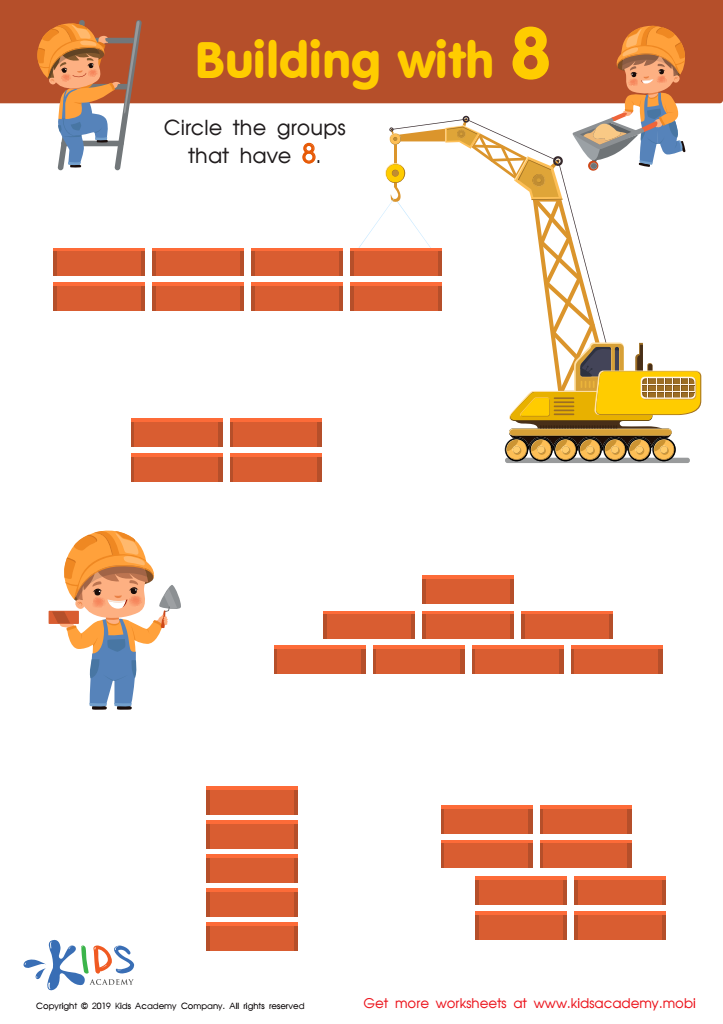

Building with 8 Worksheet
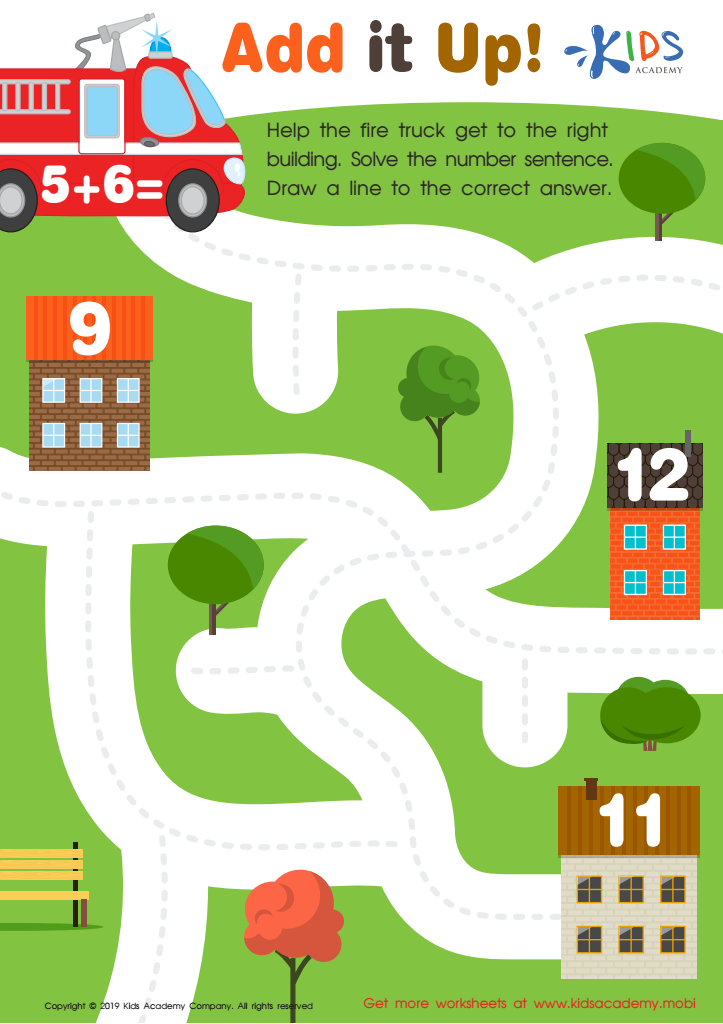

Add it Up Worksheet
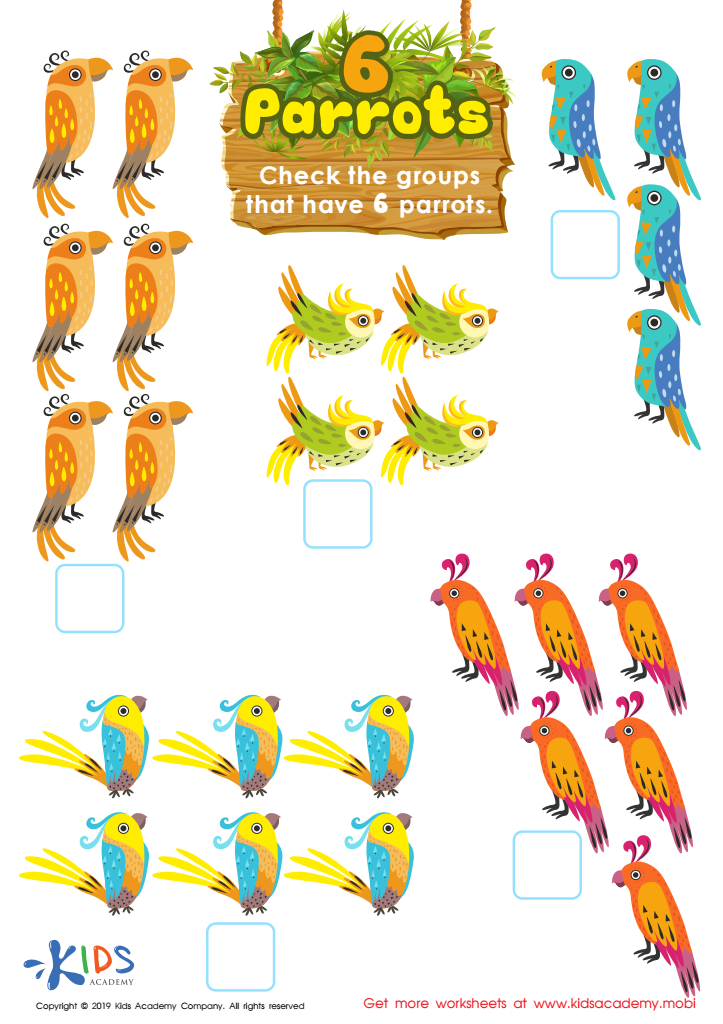

6 Parrots Worksheet
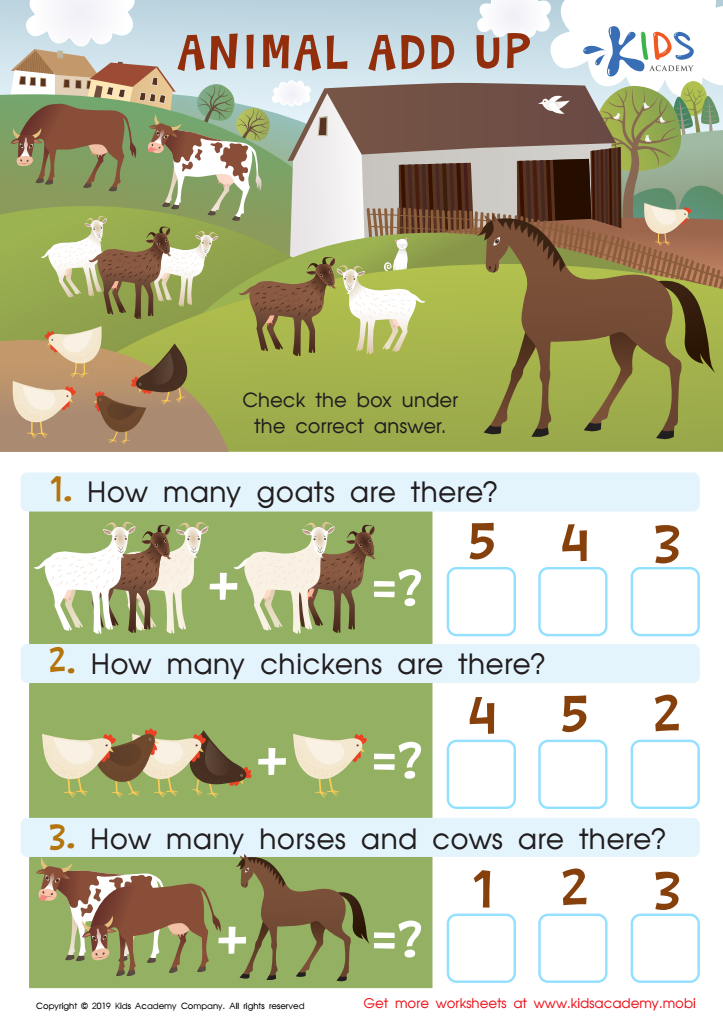

Animal Add Up Worksheet
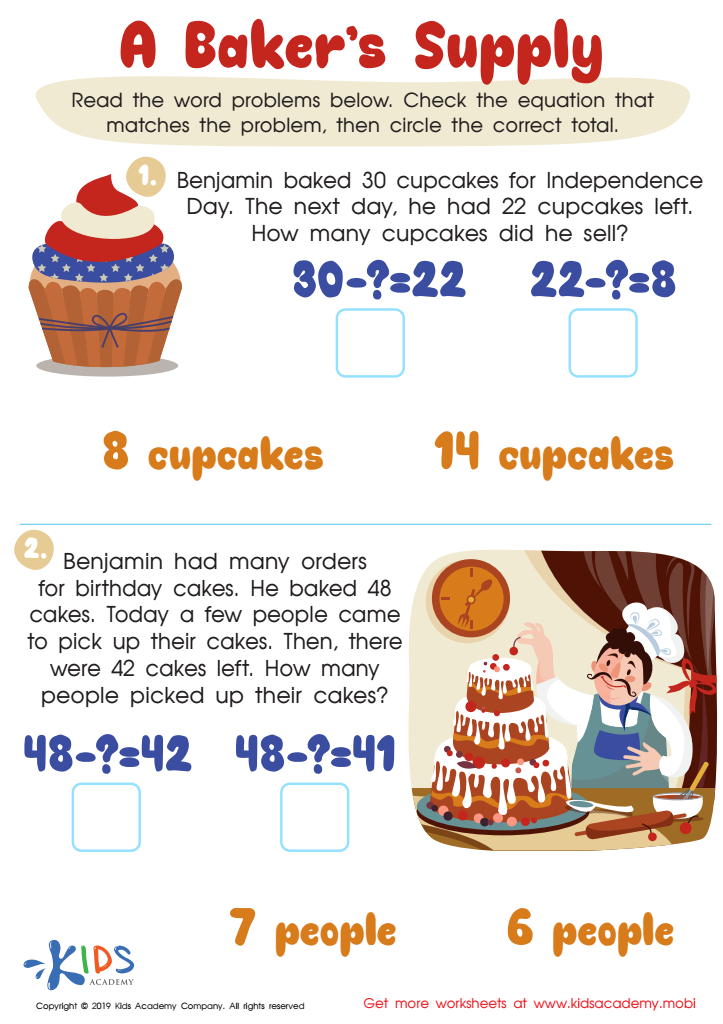

A Baker's Supply Worksheet
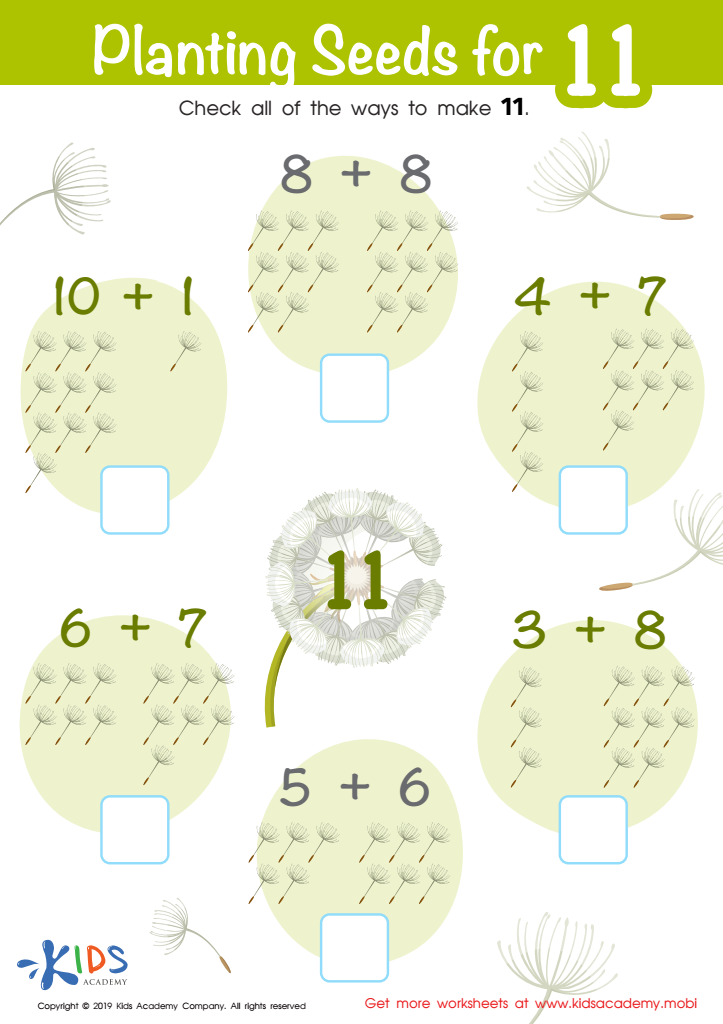

Planting Seeds for 11 Worksheet
Counting practice and mastering basic addition and subtraction are fundamental building blocks in early childhood education. Parents and teachers should prioritize these skills for children aged 4-7 because they form the bedrock for future academic success and everyday life skills.
At this age, children's brains are incredibly receptive to learning numerical concepts through playful and engaging methods. Counting practice helps children develop a strong number sense, allowing them to understand quantities, identify patterns, and develop logical thinking. This sets the stage for more complex mathematical concepts they will encounter later, such as multiplication and division.
Easy addition and subtraction practice strengthen cognitive abilities, fostering critical problem-solving skills that transcend math and are applicable in multiple areas of learning and life. Engaging children in these practices early on builds their confidence with numbers, making them less likely to struggle with math anxieties in later years.
Moreover, practical applications of these skills, such as sharing toys or figuring out lunch portions, help children appreciate the real-world relevance of what they are learning. Nurturing these early math skills also promotes a positive disposition toward learning and exploration, encouraging curiosity and a lifelong love of knowledge.
In sum, prioritizing counting, addition, and subtraction for young children is essential for their overall cognitive development, academic success, and everyday problem-solving abilities.
 Assign to My Students
Assign to My Students





















